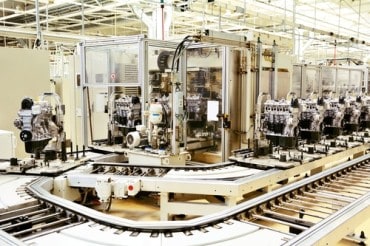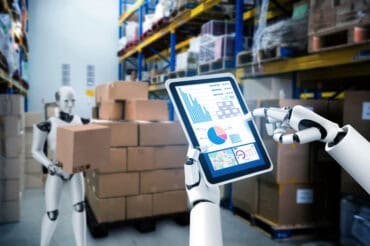
Blockchain is being used to enhance business procedures to deliver results in a faster and safer manner.
Blockchain presents something like never before seen from the entire previous generation of technologies. Once known as the underlying technology for Bitcoin, Ripple, Ether, and other cryptocurrencies across the world, the use of blockchain has turned into a priority for business leaders across industries — especially in banking, manufacturing, and energy.
Why? Blockchain is a decentralized public digital ledger that uses to record transactions across computers. If the record is altered, it disrupts all subsequent blocks in the network. In addition to this, a permanent record of every transaction is created. If simply put, nothing is lost! Everything is present in the ledger.
See also: IoT Pushes Blockchain Toward a Tipping Point
It’s working!
The process mainly comprises a chain of blocks that exist in a database where each one contains batches of transactions, which are sooner or later hashed or encoded. This chain forms the integrity of the system, where it can be easily traced back to the original one.
In any case, if the block is altered, other blocks will automatically get altered down the chain- making it easy to detect who tampered with the information. The technology is transparent, shared database protected from deletion, tampering, and revision.
Down below I would like to mention certain ways in which blockchain can transform traditional businesses, of course, for better.
Management and operations
One of the major areas in which blockchain can aid is in streamlining business procedures and reduce the friction between parties involved in the exchange of information. Business owners can use private, validate, shared ledger according to their priorities. By choosing the right way, they can focus well on the quality and origin of information, goods, or services — and smart contracts to automatically execute business agreements.
Moreover, the tech also allows participants to work together without any additional guarantees. This surely gives rise to business entities to trust each other as they are unified by the same goal to succeed as a whole. For example, Eastman Kodak, the legendary camera-maker- Earlier, the company has been struggling to maintain the competitive edge, but now by incorporating blockchain; they came up with the KODAKOne management platform. It’s an encrypted digital ledger where photographers can register both new and old photos and license them on the platform itself.
Accounting
Accounting has always been a tough call for me, and so for many others. With blockchain, things become pretty easy right from over-complex tax code to the paramount need for accuracy and precision. In addition to this, the transparency provided by the tech can decrease the time auditors spend sampling and validating transactions. For example, Deloitte launched a one-stop blockchain software platform where they can sincerely expand their offerings and making cryptocurrency trading more accessible than before.
Human Resources
We all know that the role of human resources revolves around planning, recruiting, interviewing, and hiring new people for the business. With the help of Blockchain, HR professionals can modernize the process by enabling HR professionals to verify credentials provided by job candidates and even existing employees. Moreover, the tech also prevents third-party companies from providing inaccurate data about the candidates. Benefits of using Blockchain include:
- Simplifying and standardizing payments
- Changing how companies compensate employees
- Changing how workers are saving for retirement
Marketing
With blockchain, manage budget spending, remove intermediaries, and prevent fraud, the risk of overcharging and underperformance is reduced. Moreover, you can easily reach digital influencers so that one can enable the deployment of authentically branded campaigns in a swift and scalable manner.






























